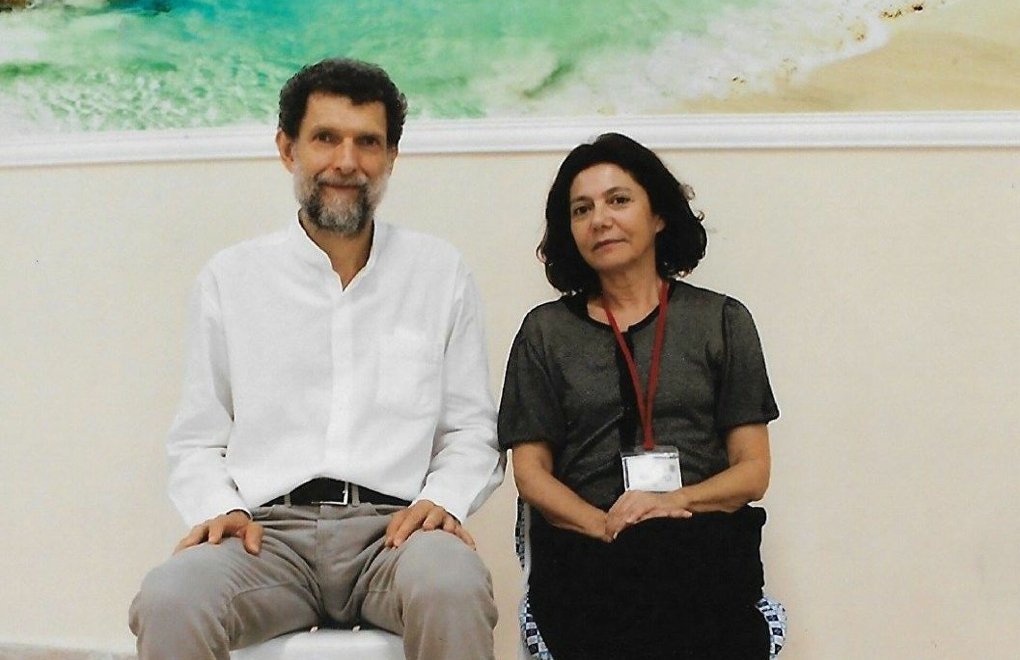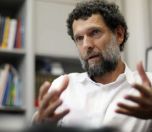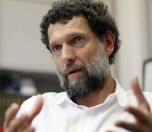Click to read the article in Turkish
Prof. Ayşe Buğra, the spouse of imprisoned businessperson and rights defender Osman Kavala, has talked about the recent developments in the wake of President and ruling Justice and Development Party (AKP) Chair Recep Tayyip Erdoğan's order to declare 10 ambassadors who had called for Osman Kavala's release as "personae non gratae" in Turkey.
Speaking to İsmail Saymaz from Halk TV, Buğra has said, "The situation can be explained with neither logic nor law."
CLICK - Osman Kavala: My participation in hearings, presenting a defense would be meaningless
Buğra's remarks about the issue are as follows:
What do you think about Erdoğan's statements?
He says that there should be no interference with the judiciary but the statements themselves do not comply with the idea of judicial independence. There is a contradiction.
How do you see your spouse's decision to not attend the hearings?
It seems that his participation in the hearings is no longer meaningful. How much do the statements at the hearings affect the judiciary? I respect his decision.
Did you know about it beforehand?
We didn't talk but I understand this decision. What difference would it make if he made defense or not?
Will you attend the hearings?
Hearings are wearisome. It is very unsettling. I don't know, I will perhaps not.
Erdoğan calls your spouse 'the Turkey branch of Soros.'
The Open Society Foundation is a foundation founded and inspected in line with Turkish laws. My spouse's position is not any different than the other executive board members. Why is a single person portrayed as the representative of Soros? Very hard to understand...
Do you have a comment? Why?
Mr. Saymaz, no, I don't. This situation has nothing to be explained with either logic or law.
How do you see the ambassadors' statements?
Turkey is a country which is a founding member of the Council of Europe and has accepted the bindingness of the European Court of Human Rights (ECtHR) judgements. The Committee of Ministers of the Council of Europe has said that it will impose sanctions if Osman is not released by the end of November. This is horrible. I see the initiative of the ambassadors as a well-intentioned initiative aimed at preventing things from coming to such a point.
How do you see the 'persona non grata' decision?
These are very serious things. The Ministry of Foreign Affairs should try to prevent it.
Do you still trust in justice?
After four years, it is impossible for me to be very hopeful about the functioning of the Turkish judiciary.
What happened?
October 18, 2021 marked the fourth year since the businessperson and rights defender Osman Kavala was detained in Turkey.
On this occasion, the embassies of 10 countries released a written statement calling for his release by specifically referring to the European Court of Human Rights (ECtHR) rulings about his case.
Shortly after this statement was shared with the public, some ministers and ruling Justice and Development Party (AKP) politicians denounced it. The state-run Anadolu Agency (AA) also reported that the ambassadors of the 10 countries had been summoned to the Ministry of Foreign Affairs of Turkey over their statement calling for Osman Kavala's release.
President and AKP Chair Recep Tayyip Erdoğan also slammed the ambassadors of 10 countries, including the US, Germany and France, who had called for the release of Osman Kavala.
"Why do these 10 ambassadors make this statement? Those who defend this leftover of [George] Soros are striving to get him released," Erdoğan said upon his visit from Africa and briefly added: " "I told our foreign minister that we can't have the luxury to host those in our country. [...] Is it your place to teach lessons to Turkey? Who are you?"
"The European Court of Human Rights (ECtHR) gave a decision. They want to convict Turkey regarding this Soros leftover," Erdoğan remarked. "Do you release bandits, killers or terrorists in your country?"
In response to these remarks, Osman Kavala sent a message from prison and briefly said, "Under these circumstances, as there has remained no possibility for a fair trial, I believe that my participation in the hearings and presenting a defense would now be meaningless."
In another speech on October 23, Erdoğan said that "he had ordered 10 ambassadors to be declared persona non grata."
"I gave the necessary instructions to our minister of foreign affairs. I told him what to do. I said that you will deal with these 10 ambassadors being declared persona non grata as soon as possible," Erdoğan said.
President and AKP Chair Erdoğan added that "the ambassadors should leave the country if they do not understand Turkey."
A brief summary of Osman Kavala's arrest17 October 2017: Osman Kavala was detained. 1 November 2017: Kavala was ordered arrest on the charges of 'attempting to overthrow the government or to prevent it from exercising its functions' (Article 312 of the TCC) and 'attempting to overthrow the constitutional order through force and violence' (Article 309 of the TCC). 24 December 2018: The investigation files under Article 309 and 312 of the TCC were separated. 19 February 2019: The first indictment against Kavala was issued under Article 312 of the TCC 16 months after he was arrested. 11 October 2019: A release order was issued in favor of Kavala on the charge under Article 309 of the TCC. 10 December 2019: The ECtHR ruled that Kavala's detention constituted a violation of human rights and that he should be released immediately. 18 February 2020: A decision of acquittal was issued in the trial heard under Article 312 of the TCC. 19 February 2020: After the decision of acquittal, Kavala was not released but was arrested again on the charge under Article 309 of the TCC. 9 March 2020: Kavala was ordered arrest under Article 328 of the TCC. 20 March 2020: The second release order was issued in favor of Kavala under Article 309 of the TCC. However, his detention on the charge of espionage under Article 328 of the TCC continued. 3 September 2020: The Committee of Ministers of the Council of Europe, which oversees the execution of the judgments of the ECtHR, ruled that the judgment of the ECtHR should be executed and that Kavala should be released immediately. 29 September 2020: The Constitutional Court of the Republic of Turkey decided to examine the application of Kavala regarding his unlawful detention. However, it postponed the examination as the second indictment including the charges under Articles 309 and 328 (espionage) of the TCC was submitted to the court on the same day. 29 September 2020: In the second meeting in which this matter was discussed, the Committee of Ministers of the Council of Europe ruled that an interim decision should be drafted to be issued in the event that the judgment of the ECtHR is not executed. 3 December 2020: The Committee of Ministers of the Council of Europe issued an interim decision that Kavala should be released immediately and that the Constitutional Court should examine the file in accordance with the judgment of the ECtHR without further delay. 15 December 2020: The Constitutional Court decided to examine the application regarding the unlawful detention and ruled that the file should be referred to the General Assembly of the Constitutional Court. 18 December 2020: The 36th Assize Court ruled that the detention shall continue. The second hearing was scheduled on 5 February. 29 December 2020: The Constitutional Court ruled with 8 to 7 votes that the decision of Kavala did not constitute any violation of right. The reasoned judgment included the strongly dissenting opinions of the judges who voted that the detention constituted a violation of rights. 22 January 2021: The Appellate Court overturned the decision of acquittal in the Gezi trial. It ruled that the file concerning this trial shall be examined together with the files under Articles 309 and 328 of the TCC. 28 January 2021: After the decision of acquittal was overturned, the 30th Assize Court issued a preliminary proceedings report and scheduled the trial concerning the consolidated files on 21 May 2021. 5 February 2021: In the trial heard in the 36th Assize Court, the Court ruled that Kavala's trial shall be consolidated with the Gezi Trial, which will be heard again in the 30th Assize Court under Article 312 of the TCC, and that the detention of Kavala on the charges of espionage under Article 328 of the TCC shall continue. 30 April 2021: As a result of its examination of the detention, the 30th Assize Court ruled that the detention of Kavala shall continue. 12 May 2021: In its weekly meeting of 12 May 2021, the Committee of Ministers of the Council of Europe reviewed Kavala's file and expressed their great concern that Turkish authorities and courts did not take the necessary steps to end Kavala's continued detention against the judgment of the ECtHR. The Committee urged the member states to bring up the continued detention and immediate release of Kavala during their meetings with Turkish authorities. It pointed out that the detention of Kavala would be reviewed again by the 30th Assize Court on 21 May 2021, and urged the authorities to take all the necessary steps to ensure the release of Kavala. CLICK - Committee of Ministers of Council of Europe: Release Demirtaş and Kavala |
(HA/SD)







-132.jpg)



-132.jpg)

sa.jpg)